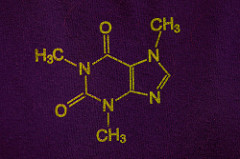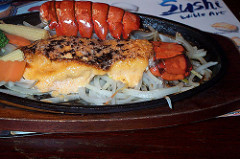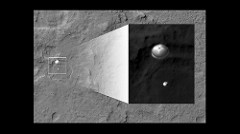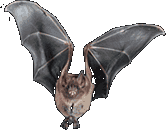I’m a big fan of caffeine. So much so that I have a caffeine molecule tattooed on my left forearm.  But it turns out that humans aren’t the only caffeine aficionados. Bees like caffeine, and spend more time gathering nectar from flowers which naturally produce caffeine.
But it turns out that humans aren’t the only caffeine aficionados. Bees like caffeine, and spend more time gathering nectar from flowers which naturally produce caffeine.
Scientists at the University of Sussex said they thought the plants produce the caffeine in their nectar to fool bees into thinking it contains more sugar than it actually does. The insects will repeatedly visit those flowers, helping the plants maximize pollination.
Francis Ratnieks, a professor of apiculture at the university, said bees communicate by moving their abdomens a certain way — or, as he calls it, “dancing.” He said the caffeine increases that dancing.
Photo by paulscott56 

 Well, Smithsonian Magazine is here to teach us that no,
Well, Smithsonian Magazine is here to teach us that no,  Celebrating 10 years of investigating the Red Planet from above, Wired Magazine presents
Celebrating 10 years of investigating the Red Planet from above, Wired Magazine presents 